Even as India celebrated the 69th Independence Day on Saturday, there are many people in the country who have strive hard to understand even the meaning of independence.
Abdul Gani of TwoCircles.net visited a remote area in Assam’s Baksa district which falls under Bodoland Territorial Area Districts (BTAD) along the India-Bhutan border to witness their way of ‘freedom’ on the 69th Independence Day.
They are the victims of violence which took place on May 2 in 2014 when armed militants opened fired in their villages killing at least 41 persons including children and women. Though some of them returned to their homes, they are yet to make their way back to normalcy, consequently living in relief camps for over 18 months.
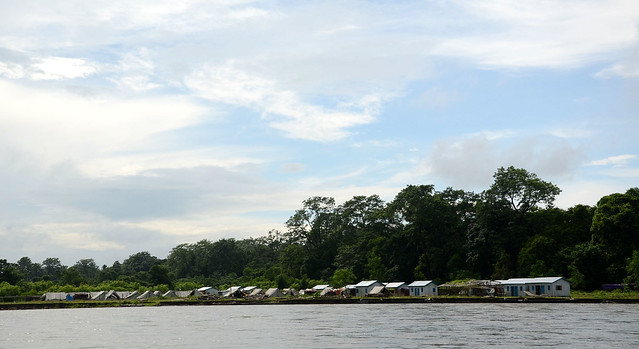
Khagrabari Camp: A view of the camps from the middle of river Beki.
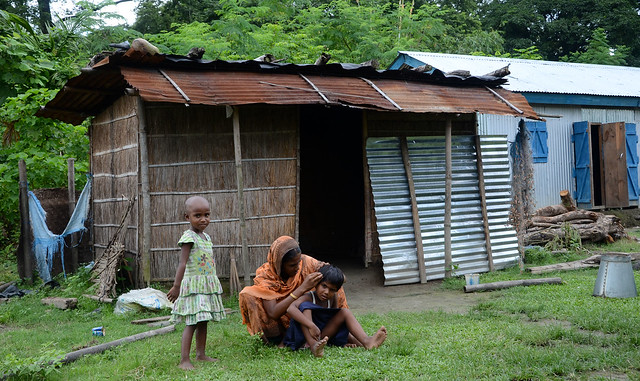
A woman sittings with her two children in front of their makeshift camp.
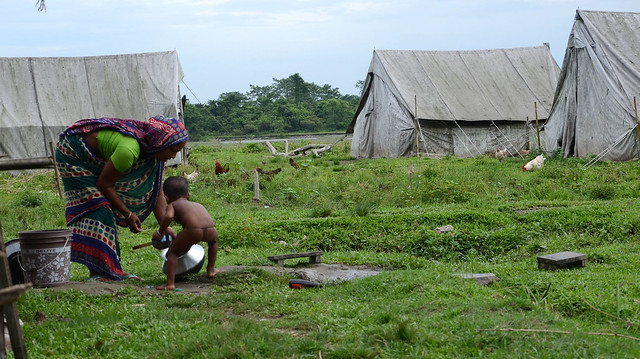
Halima Khatun, with her young son at the makeshift camp on the bank of river Beki, says they want to move out of the camp at the earliest. “I want to have a secured future for my kids and we want to breathe fresh air out of this camp.”
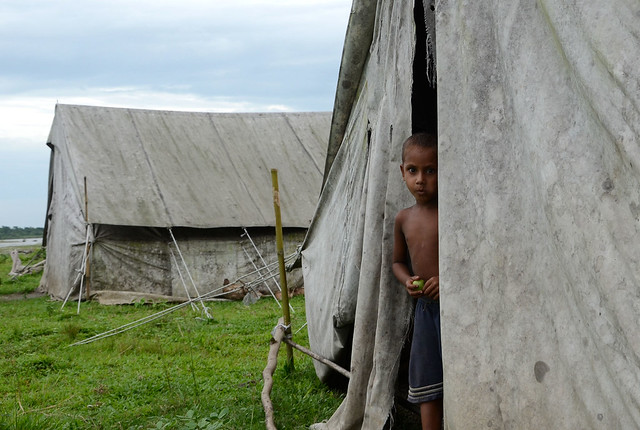
A child living in the camp peeps out of his worn out tent. Children living in the camps are most vulnerable as there are no proper sanitation system. Right to Education is also a dream for most of the kids out of 25 who are below 13 years of age.
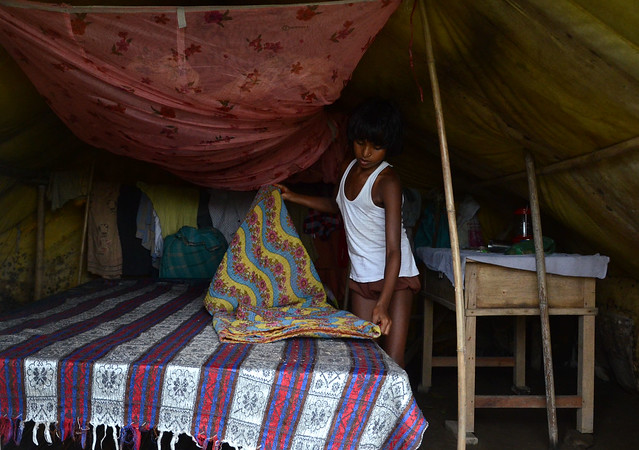
A girl manages her room in the camp.
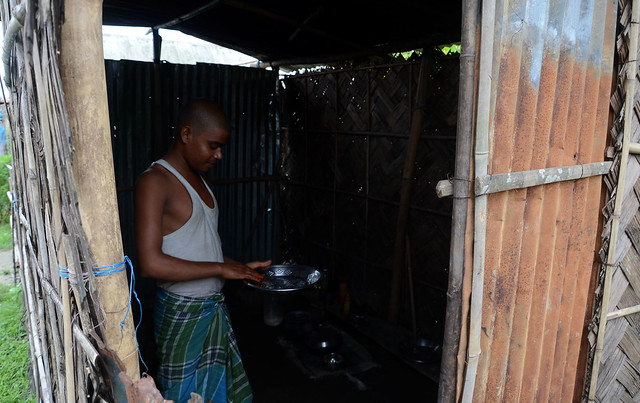
16 year old Joynal Ali readies for lunch. Ali who left school ‘long back’ lost his mother when militants opened fire indiscriminately at the villagers. With his father is separated even before the death of his mother, Ali heads for an uncertain future.
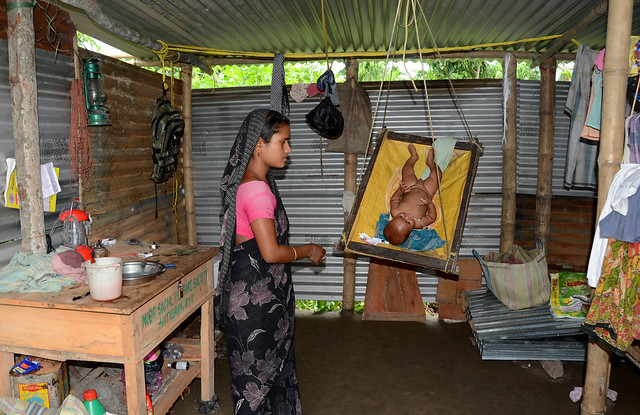
Rupsana Begum plays with her seven month old son Rustam Ali at their shanty in the makeshift camp. Life is most difficult for mothers and such infant babies who are born after the people have been shifted to these camps. Rupsana is hopeful that they will have better days coming soon as her husband and relatives have started to re-build the burnt houses in their villages. “Once our houses are completed, we can move out from here. We don’t want anything but peace so that everybody can live and think of our better future. We pray so that our children do not have to face the same fate,” she says.
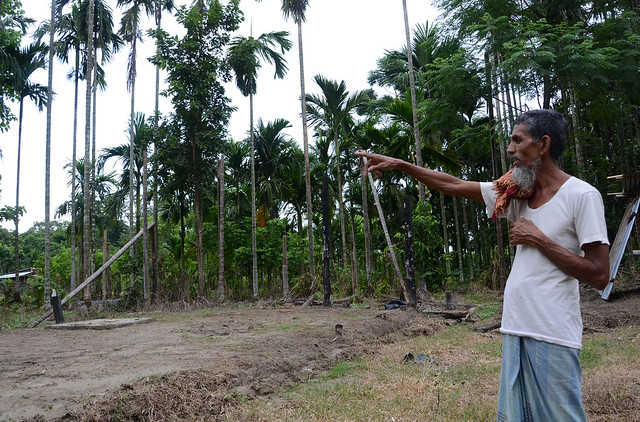
Abdul Hamid is one of the senior most inmates of the camp who is respected and everybody obeys his words. Hamid says that independence means nothing to them as they are still living under the shadow of fear of uncertainty. “The villagers were killed without their faults. We do not even have the basic facilities in the camps. Our women and men have to go to the nearby jungles for defecation,” he says, adding thoughtfully, “We have got some assistance from the government but the basic thing is that we want to live like nother Indian citizen with pride. I hope our prayers will be heard someday.”
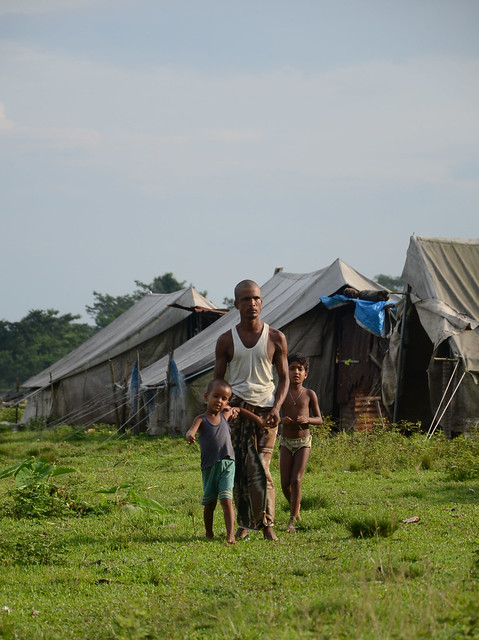
Little Ramajoddin (left) his who sustained bullet injury as a four year old during the violence takes a walk with his father Ibrahim Ali. Ibrahim says that his son is still to get rid of the shock of that horrific moment. “He is normal but sometimes, he tends to behave in a different way. Sometimes in the middle of the night he would wake up shouting,” says Ibrahim.
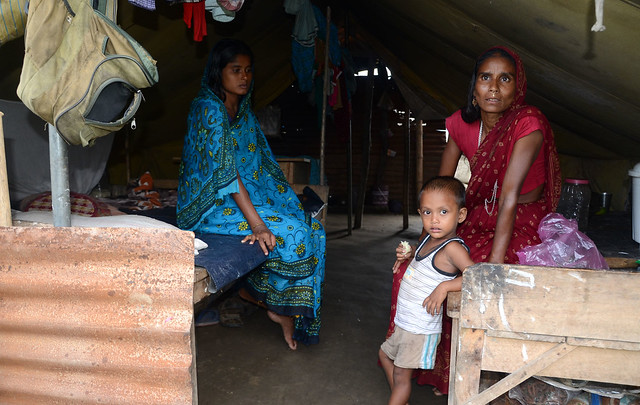
Ashma Khatun (right) has lost as many as four members of her family including her mother-in-law, sister-in-law and two nephews. She prays so that such days never repeat. “Hardship has been a part of our lives. But we do not want to live like this,” she says.
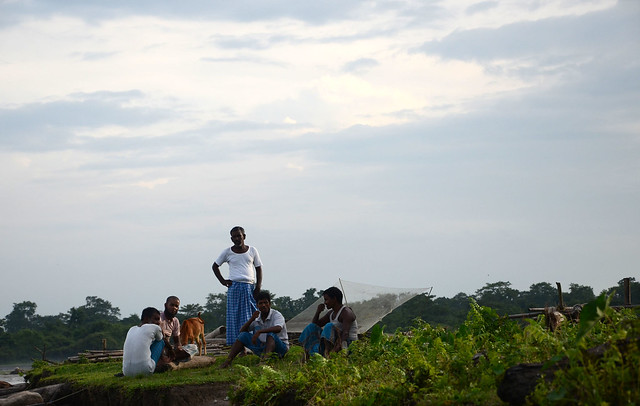
Few inmates of the camp sit on the bank of river Beki in the afternoon of Saturday to pass their leisure time.
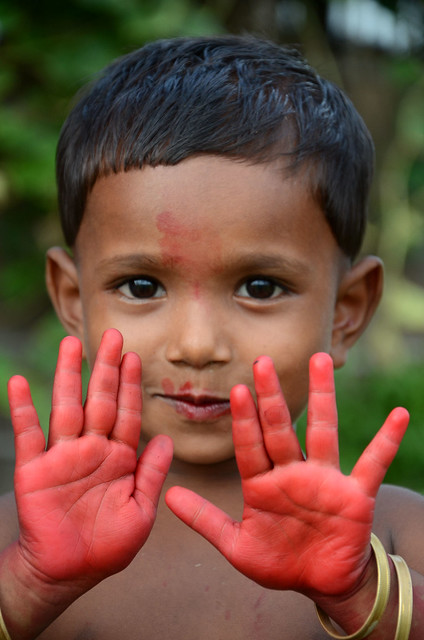
In the midst of all the troubles, there is some sort of relief to see such smiling innocent faces in the camp premises.
(Photos and Texts by Abdul Gani)

